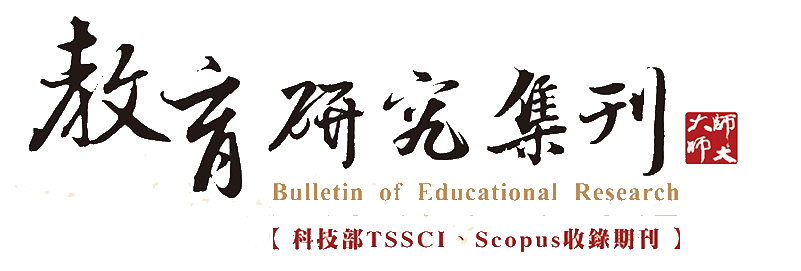| 篇名 |
《周易》憂患意識及修德九卦之德育意涵
更多文章
|
|---|---|
| 並列篇名 | The Significance of Moral Education in Relation to“Caring for Life Development in Adversity” and “Nine Hexagrams of Cultivating Virtues” in ZhouYi |
| 作者 | 周仲賢 |
| 中文摘要 | 研究目的 科技快速發展及資訊流通便捷,使當代生活世界愈趨多元複雜,變動亦愈發劇烈,我們如何能因應時勢、防患未然,並審慎、合宜地判斷與行動,使人我的生命皆能獲得關懷、維護與發揮,尤有進者,當代道德教育如何規劃與實施,以培養學生因應現今多元複雜、持續變化之社會所需的品德及能力,乃本研究目的。 主要理論或概念架構 不適用。 研究方法 本研究使用概念分析及詮釋學方法,以《周易》為主要研究文獻,分析、闡述並討論其「憂患意識」的道德意涵及「修德九卦」於道德教育上的要則。 研究結論 本研究分析中國哲學重要經典—《周易》,其所蘊含「憂患意識」的意涵,及其卦爻辭對吉凶決斷與人事作為的指導。《周易》實強調人們應根據「生生不已」的道德價值,在思考與行動上長保敬慎警惕、居安思危及對自我言行負責,並能自主、積極地培養品德且依道德原則作為,同時審時度勢,妥善權衡情境條件與因應策略,合宜且適當地進行道德判斷,以使生命能趨吉避凶或轉危為安。 本研究並探究《周易‧繫辭傳》指陳之「修德九卦」。此九卦展現品德修養的根本、內容、原則、方法及功用,教導人們在面對複雜、艱難、困厄的情況時,仍須能堅守且實踐道德原則,並能依道德原則謹言慎行、自我反省、學習覺察本有「仁心」、感知他人需求、減損不當的作為、培養謙遜寬容的品德、幫助或增益他人等,進而更須通權達變、因時制宜地回應處境,以使人我的生命獲得關心、在意,進而能通達榮盛,足供當代道德教育參考。 理論或實務創見/貢獻/建議 本研究主張《周易》的本質雖是卜筮之書,但其內容著重在勉勵與指導人們謹慎行事、防患未然、審時度勢、關心生命,且應積極地培養品德且妥當地行善,故可作為能回應現今變遷快速生活的道德指南,並提供德育規劃與實施參考。本研究於建構與回應當代道德教育理論及實務的創見或貢獻,簡述如下: 一、探究傳統文化經典對當代生活的道德意義,並彰顯成己成人的道德價值與目的。 二、探究「憂患意識」之道德意涵,並以其意涵為基礎,分析與論述從吉凶判斷啟發與指導人們道德省思與實踐的重要原則。 三、闡釋「修德九卦」中各卦之道德教育內涵,並提出能因應當代多變而複雜生活世界的品德與能力,以及在德育上培養這些品德與能力之方法和原則。 四、透過與當代西方道德教育等理論的相互對話,更具體而清楚地闡釋及充實「修德九卦」之德育蘊義,教導人們面臨艱險困難時,使人我的生命能趨吉避凶並存續共榮之道德實踐的指南。 |
| 英文摘要 | Purpose The rapid development of technology and the ease of information flow have made modern life increasingly dynamic and complex. This raises the question of how we can adapt to the times, prevent potential risks, and make prudent and appropriate judgments and actions to ensure that everyone’s life is cared for, protected, and allowed to thrive. Furthermore, how can contemporary moral education be implemented to cultivate students’ characters and abilities to respond to the demands of today’s diverse and complex situations? Addressing these questions is the purpose of this study. Main Theories or Conceptual Frameworks Not applicable. Research Design/Methods/Participants This study adopts concept analysis and hermeneutic methods, using ZhouYi as the primary research literature, to explore the moral meaning of “caring for life development in adversity” and the principles of moral education embodied in “nine hexagrams of cultivating virtues.” Research Findings or Conclusions This study explores the significance of “caring for life development in adversity” and the principles of judgment between good and bad in ZhouYi. These principles emphasize that individuals should uphold the moral value of “endless vitality,” and think or act with cautious, vigilant, and responsible attitudes. People are required to cultivate virtues, assess current situations and trends, carefully weigh pros and cons, and make appropriate judgments based on the circumstances to achieve success, avoid adversity, or turn danger into safety. Furthermore, the “nine hexagrams of cultivating virtues” reveal the contents, principles, methods, and functions of virtue cultivation. They teach individuals to uphold moral values and act according to moral principles when facing adversity. For the care and flourishing of life, the hexagrams suggest that people should learn to act cautiously and speak carefully, self-reflect, be aware of their inherent benevolence, understand the situation, reduce misbehavior, be humble, contribute to the well being of others, think prudently and flexibly, and act appropriately according to the circumstances. These serve as important guidelines for contemporary moral education. Theoretical or Practical Insights/Contributions/Recommendations Although the essence of ZhouYi lies in divination, its content emphasizes encouraging and guiding people to act with caution, prevent problems before they arise, assess situations, weigh pros and cons, care for life, cultivate virtues, and do good. It serves as a moral guide for a rapidly changing world and provides a valuable reference for planning and implementing moral education. The innovative ideas or contributions to develop contemporary moral education theory and practice include: 1. Exploring the moral significance of traditional cultural classics in contemporary life and highlighting the values of self-cultivation and helping others. 2. Analyzing and discussing the important principles of moral reflection and practice, based on the moral significance of “caring for life development in adversity.” 3. Expounding the moral education content of “nine hexagrams of cultivating virtues,” and proposing methods, guidelines, and principles for implementing moral education which help students acquire the characters and capability needed to respond to the complex and ever-changing modern world. 4. Engaging in dialogue with contemporary western theories of moral education to elucidate and enrich the moral implications of the “nine hexagrams of cultivating virtues.” These hexagrams serve as moral principles that guide people in pursuing happiness, avoiding danger, and ensureing that their lives thrive. |
| 起訖頁 | 119-158 |
| 關鍵詞 | 周易、易傳、修德九卦、道德教育、憂患意識、ZhouYi (the Book of Changes)、YiZhuan (the Commentaries of the YiJing)、nine hexagrams of cultivating virtues、moral education、caring for life development in adversity |
| 刊名 | 教育研究集刊 |
| 期數 | 202409 (70:3期) |
| 出版單位 | 國立臺灣師範大學教育學系 |
| DOI | 10.6910/BER.202409_70(3).0004 複製DOI |
| 該期刊-上一篇 | 五四時期馬來亞華人社會的「走向底層」運動與通俗學校之興起 |
| 該期刊-下一篇 | 評《文部科學省:搖搖欲墜的日本教育行政》 |








